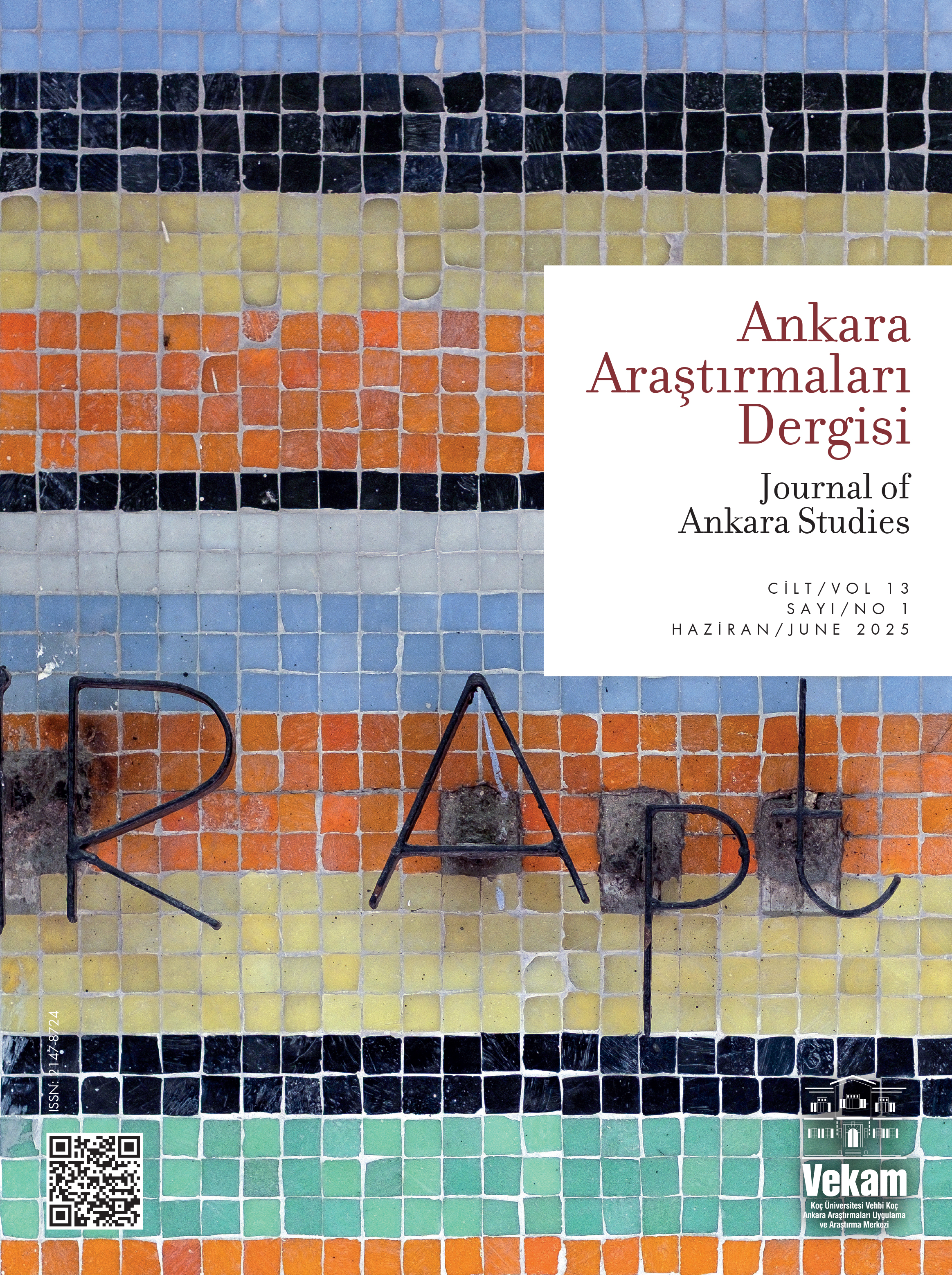Ankara’da Yeni Mamak Kentsel Dönüşüm Projesi Ölçeğinde Dönüşen Mekânlar, Değişen Gündelik Hayat Pratikleri
Burcu Göközkut1, Mehmet Somuncu21Afyon Kocatepe Üniversitesi, Coğrafya Bölümü, Afyonkarahisar2Ankara Üniversitesi, Coğrafya Bölümü, Ankara
Neoliberal politikaların kent mekânındaki yansıması olan kentsel dönüşüm projeleri 1980’lerden günümüze hız kazanmıştır. Birçok farklı alanda yapılabilen projeler, Türkiye’de genellikle gecekondu alanları üzerinde olmaktadır. Ankara’daki en büyük gecekondu mahallerinden bir kısmına ev sahipliği yapan Mamak, Yeni Mamak Kentsel Dönüşüm Projesi ile alan büyüklüğü, konut ve kişi sayısı bakımından devasa bir kentsel dönüşüm projesinin merkezi olmuştur. Böylesi büyük bir proje, yarattığı dönüşüm ve yerinden edilme nedeniyle birçok problemin ortaya çıkmasına neden olmuştur. Buna göre çalışmanın amacı, Yeni Mamak Kentsel Dönüşüm Projesi ile mekândaki dönüşümü ve bu dönüşümün yarattığı sosyo-ekonomik değişimi tespit etmektir. Aynı zamanda, bir kentsel dönüşüm projesi ile yeni ve eski mekânlar arasında oluşan çatışma ve tezatlıkları, proje ile yer değiştiren gecekondulu kesimin neoliberal baskı karşısında borçlandırılmasını ve değişen günlük hayat pratiklerini incelemektir. Özellikle projenin biten etaplarındaki yüksek katlı apartmanlar ile inşaat çalışmalarının başlamadığı etaplardaki gecekondu alanları arasında mekânsal bir çelişki ortaya çıkmakta, bu çelişki apartmanda yaşayanlar ile gecekonduda yaşayanlar arasında çatışmaya dönüşmektedir. Bu nedenle çalışma evreni projenin tamamlandığı 1. Etap ile inşaatın başlamadığı 2. Etap olarak seçilmiştir. Çalışmada nitel araştırma yöntemi kullanılmıştır. Veri toplama aracı olarak farklı paydaş gruplardan bireylerle derinlemesine görüşme yapılmıştır. Çalışmada derinlemesine görüşme yapılacak üç örneklem grubu belirlenmiştir. Bu gruplar, Yeni Mamak Kentsel Dönüşüm Proje alanında yaşayan yerel halk, Ankara Büyükşehir Belediyesi’nde bu projede çalışan ve Mamak Belediyesinde görevli belediye görevlileri ve kent çalışmalarında uzman olan akademisyenler olmuştur. Derinlemesine görüşmelerden elde edilen veriler betimsel analiz yöntemi ile analiz edilmiştir. Çalışmada, proje alanında yeni yapılan apartmanlara geçen gecekondulu kesimin eski yaşam tarzına büyük özlem duyduğu, yeni yaşam koşullarına alışmakta zorluk çektiği, bu durumun da mekânla tezatlık oluşturacak görüntüler ortaya çıkardığı tespit edilmiştir.
Anahtar Kelimeler: Kentsel Dönüşüm, Gecekondu, Neolibralizm, Yeni Mamak Kentsel Dönüşüm Projesi, AnkaraSpatial Transformations and Changing Everyday Life Practices in the New Mamak Urban Regeneration Project, Ankara
Burcu Göközkut1, Mehmet Somuncu21Department of Geography, Afyon Kocatepe University, Afyonkarahisar, Turkey2Department of Geography, Ankara University, Ankara, Turkey
The number of urban regeneration projects, which are the reflection of neoliberal policies on urban space, have increased since the 1980s. Regeneration projects can be implemented in many different places but in Turkey they are usually carried out on squatter areas (illegal housing areas). The “New Mamak Urban Regeneration Project” has transformed Mamak, the location of the largest squatter district in Ankara, into a center of a huge urban regeneration project in terms of its area, number of flats and its inhabitants. This large project has caused a number of problems due to its transformative impact and dislocated original residents. The aim of the study is to identify the spatial transformations and caused by the New Mamak Urban Regeneration Project and the socio-economic changes that it brought about. Other aims are to examine the conflicts and contrasts between new and old spaces, debiting the residents of squatter houses who were relocated from their homes as part of neoliberal policies, as well as changing everyday life practices. Especially noteworthy is the spatial contradiction between the high-rise apartment buildings nearing their completion and the squatter areas where construction has yet to start. For this reason, case study areas include the stage 1, where the project has already been completed, and stage 2, where construction has not begun. As part of the qualitative research method that was applied in the study, data was collected through in-depth interviews with individuals from different stakeholder groups. Three sample groups were identified: residents, municipal officers charged with implementing the project, and academics who are experts in urban studies. The data obtained from the in-depth interviews were analyzed using the descriptive analysis method. The study showed that the people who originally lived in squatter areas but who then moved to apartment buildings had a longing for their old way of life and had difficulty adapting to their new living conditions. This situation is seen to have created scenes that contrast the newly built spaces.
Keywords: Urban Regeneration, Squatter, Neoliberalism, New Mamak Urban Regeneration Project, AnkaraMakale Dili: Türkçe













